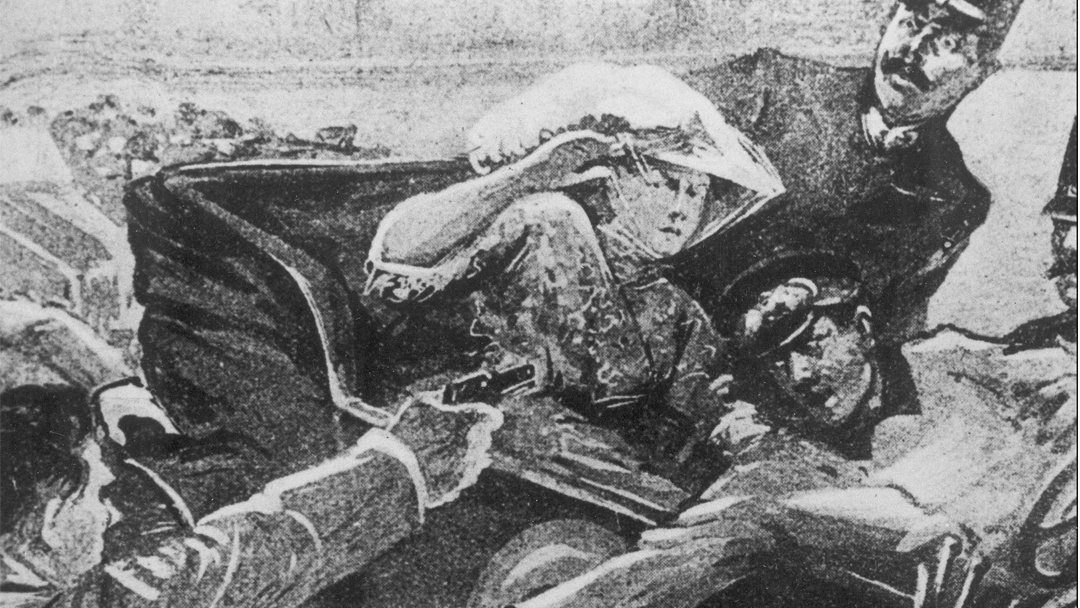Robert Leroy Johnson is ranked as the fifth best guitarist of all time by Rolling Stone Magazine and is considered to be one of the fathers of rock and roll–but he didn’t start out that way, nor did he experience great fame in his lifetime.
Little is known about the young African-American man who became “King of the Delta Blues.” He spent most of his time in the Mississippi Delta region hitchhiking and playing for tips on the streets or in front of restaurants and barbershops. Instead of the blues, he played popular music to please his audiences and was known to be lively with his harmonica.
Johnson frequented clubs where famous blues artists of his generation like Son House and Willie Brown often performed. During set breaks, he would ask to sing and play guitar. Son House recounts Johnson being embarrassingly bad at guitar, with audiences asking him to stop the noise.
Then, Johnson disappeared for a year or two between 1930 and 1932. Some believe he went seeking his biological father, while others insist he was honing his craft. Some say he was practicing guitar at night in graveyards with the guitarist Ike Zimmerman.
One thing is known for sure: he arrived back on the music scene as a master of guitar.
“He was so good, when he finished all our mouths were standing open,” Son House said of his return. Thus, the legend began.
How did Johnson go from a poor guitar player to one of the greatest of all time in such a short time? To justify the inconceivable rise of his guitar prowess, stories rose of Johnson selling his soul to the Devil in exchange for genius-level musical gifts.
For all his talent, Johnson never headlined, toured, or became a household name. He was recorded once in 1936 and again in 1937, gaining a small following.
He died at 27, invoking the “27 Club” of musicians who die at that age, including Janis Joplin, Jimi Hendrix, Jim Morrison, and Kurt Cobain. This early demise served to fuel the contract-with-the-Devil hypothesis.
Yet the true cause of his death remains wrapped in mystery, with theories ranging from untreated syphilis to murder by a jealous married man.
Johnson’s songwriting, guitar style and technique influences musicians to this day. Colombia Records released his discography in 1961 which was named the Grammy’s Best Historical Album in 1990 and in 1998, Cross Road Blues was inducted into their hall of fame.
Whether giving his soul to the Devil or to the Blues, the mysterious Robert Johnson solidified himself as a guitar legend and will forever live on as an icon of the Delta Blues. The truth of the man himself, just like the meaning of the Blues, remains elusive.












